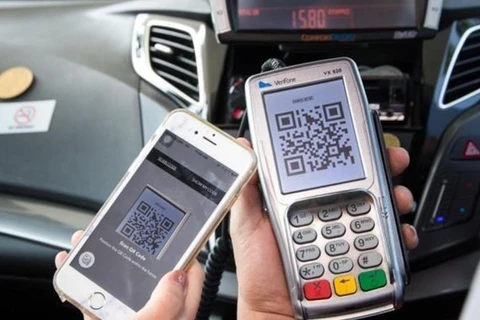HCM City (VNS/VNA) - Increased use of digital payments has the potential to add 72 million USD annually to central Da Nang city’s economy, according to the latest study from Visa, “Cashless Cities: Realising the Benefits of Digital Payments".
Conducted by Roubini ThoughtLab, a leading economics and evidence-based research firm, and commissioned by Visa, one of the world’s leader in digital payments, the study examines the economic impact of increasing the use of digital payments in major cities around the world.
Converting the Da Nang economy to “an achievable level of cashlessness”, which is defined as the entire population of a city moving to digital payment usage equal to the top 10 percent of users in that city today, could improve job creation by 3 percent, productivity by 3.4 percent, wages by 3.1 percent, and GDP growth by 0.34 percent, according to Visa's research.
These findings were presented at the Smart City Summit 2019 in Da Nang, which also saw presentations from representatives from Da Nang People's Committee, Vietnam Software and IT Services Association, the Ministry of Science and Technology, and the Ministry of Information and Communications.
The Smart City concept is one in which metropolitan areas use a variety of technologies and data collection methods in order to improve the administration of the city, and thus benefit the lives of citizens. It often focuses on developing more efficient ways of delivering services and running infrastructure.
Dang Tuyet Dung, Visa Country Manager for Vietnam and Laos, said: “Da Nang has earned a reputation as a hive of technological innovation, particularly with the establishment of the Da Nang IT Park earlier this year, and we commend the city officials in having such foresight in this area.”
“Through greater integration of electronic payments into both the public and private sectors, many aspects of day-to-day life for citizens can be simplified or improved, while the government itself can more effectively manage the economy,” Dung added./.
Conducted by Roubini ThoughtLab, a leading economics and evidence-based research firm, and commissioned by Visa, one of the world’s leader in digital payments, the study examines the economic impact of increasing the use of digital payments in major cities around the world.
Converting the Da Nang economy to “an achievable level of cashlessness”, which is defined as the entire population of a city moving to digital payment usage equal to the top 10 percent of users in that city today, could improve job creation by 3 percent, productivity by 3.4 percent, wages by 3.1 percent, and GDP growth by 0.34 percent, according to Visa's research.
These findings were presented at the Smart City Summit 2019 in Da Nang, which also saw presentations from representatives from Da Nang People's Committee, Vietnam Software and IT Services Association, the Ministry of Science and Technology, and the Ministry of Information and Communications.
The Smart City concept is one in which metropolitan areas use a variety of technologies and data collection methods in order to improve the administration of the city, and thus benefit the lives of citizens. It often focuses on developing more efficient ways of delivering services and running infrastructure.
Dang Tuyet Dung, Visa Country Manager for Vietnam and Laos, said: “Da Nang has earned a reputation as a hive of technological innovation, particularly with the establishment of the Da Nang IT Park earlier this year, and we commend the city officials in having such foresight in this area.”
“Through greater integration of electronic payments into both the public and private sectors, many aspects of day-to-day life for citizens can be simplified or improved, while the government itself can more effectively manage the economy,” Dung added./.
VNA
























